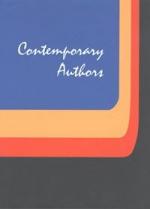|
This section contains 2,357 words (approx. 8 pages at 300 words per page) |

|
Once we have grasped the nature of Mr. Blackmur's dialectic, the function and the value that he attributes to the symbolic imagination becomes almost self-explanatory. What Mr. Blackmur wants, what the internal logic of his sensibility impels him to postulate, is a dialectical balance that maintains the proper relationship between his two terms [unity and chaos]; and in the essay on Babbitt he defines "the religious imagination" in a manner that explains what this relationship must be. (pp. 238-39)
[The] religious imagination creates an order that does not exclude disorder or a unity that does not exclude chaos. But since for Mr. Blackmur, as he has made clear on a number of occasions, the religious imagination is no longer viable, he remarks in the Babbitt essay "that it is both necessary and possible that we make a secular equivalent of the religious imagination." This is precisely the purpose...
|
This section contains 2,357 words (approx. 8 pages at 300 words per page) |

|


